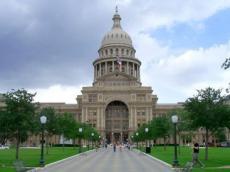|
|
TODAY.AZ / Politics
Texas House adopts resolution to criticize Khojaly genocide
12 March 2013 [12:30] - TODAY.AZ
 By AzerNews
By AzerNewsThe House of Representatives of the US state of Texas on March 7 adopted a resolution condemning the Khojaly massacre committed against Azerbaijanis by Armenians during the 1990s war.
The resolution indicates the occupying of Azerbaijan's town of Khojaly by Armenian armed forces with the help of a regiment of the USSR and the killing of innocent people there. The document also says that the Khojaly tragedy was the most large-scale massacre committed during the Armenia-Azerbaijan Nagorno-Karabakh conflict.
A number of the world's leading media covered the Khojaly massacre. Human Rights Watch described the massacre as "the largest massacre to date in the conflict'' over Nagorno-Karabakh, and the governments of many countries condemned the brutal attack.
Resolution HR 565 was authored by a member of the Texas House of Representatives from District 149. Hubert Vo called on his fellow congressmen to commemorate the victims of the Khojaly genocide. The draft resolution was submitted to the House of Representatives by Congressman Vo on February 21.
Prior to that, in 2011, the Texas House passed a resolution recognizing and commemorating the victims of Khojaly Massacre, as a result of annual campaigns conducted by the U.S. Azeris Network (USAN).
Resolution HR 535 was authored by State Representative Jim Murphy (R-TX) and adopted by the House of Representatives on March 3, 2011 by a non-record vote. That resolution recognizing Khojaly Massacre was the first one passed within the state legislature in Texas and nationwide.
The number of US states recognizing and condemning the Khojaly genocide is increasing day by day.
Recently, Oklahoma became another U.S. state to recognize the Khojaly genocide.
The town of Khojaly was situated within the administrative borders of the Nagorno-Karabakh region of Azerbaijan. Its population constituted over 7,000 people.
Late into the night of February 25, 1992, Khojaly came under intensive fire from the towns of Khankendi and Askeran already occupied by Armenian armed forces. The Armenian forces, supported by the ex-Soviet 366th regiment, completed the surrounding of the town already isolated due to ethnic cleansing of the Azerbaijani population of the neighboring regions. The joint forces occupied the town, which was ruined by heavy artillery shelling.
Thousands of fleeing civilians were ambushed by the Armenian forces. Punitive teams of the so-called Nagorno-Karabakh defense army reached the unprotected civilians to slaughter them, mutilating and scalping some of the bodies. 613 civilians, including 106 women, 70 elderly and 83 children, were killed in the massacre. A total of 1,000 civilians were disabled. Eight families were exterminated, and 25 children lost both parents, while 130 children lost one parent. Moreover, 1,275 innocent people were taken hostage, while the fate of 150 remains unknown.
Armenia's incumbent president, Serzh Sargsyan, who also commanded Armenian forces during the Karabakh war with Azerbaijan, described the massacre as an act of revenge to "break the stereotypes" of Azerbaijan. Though Armenian authorities formally deny involvement, in the March 1997 Human Rights Watch reaffirmed the primary role of Armenian forces in the massacre.
Last month, New Mexico and Arkansas state legislatures recognized the Khojaly massacre in addition to the states of Georgia, Texas, New Jersey, Maine and Massachusetts that have done the same in the past few years.
Resolutions on the Khojaly tragedy have also been passed in the parliaments of Turkey, Pakistan, Mexico, and Colombia, as well as the Organization of Islamic Cooperation (OIC).
This year, such resolutions were adopted in the parliaments of the Czech Republic, Romania, Serbia and Bosnia and Herzegovina.
Azerbaijan and Armenia for over two decades have been locked in conflict, which emerged over Armenian territorial claims. Since the lengthy war in the early 1990s that displaced over one million Azerbaijanis, Armenian armed forces have occupied over 20 percent of Azerbaijan's internationally recognized territory, including Nagorno-Karabakh and seven adjacent regions.
Russia, France and the U.S. - co-chairs of the OSCE Minsk Group - have long been working to broker a solution of the long-lasting conflict, but their efforts have been largely fruitless so far.
URL: http://www.today.az/news/politics/120194.html
 Print version
Print version
Views: 2189
Connect with us. Get latest news and updates.
See Also
- 05 January 2026 [12:54]
Tokayev praises President Ilham Aliyev’s fitness, highlights leaders’ active lifestyles - 05 January 2026 [11:11]
Kirants as Political lesson: Where Armenian myths end - 04 January 2026 [19:42]
President Ilham Aliyev receives delegation from U.S. [PHOTOS/VIDEO] - 04 January 2026 [15:30]
Iran underscores need to deepen ties with Azerbaijan, Araghchi says - 02 January 2026 [10:28]
President Ilham Aliyev expresses condolences to President of Swiss Confederation - 01 January 2026 [18:21]
New Year’s table set at social service institution for elderly people - 01 January 2026 [12:41]
President Ilham Aliyev sends congratulatory letter to Cuban President - 01 January 2026 [12:30]
President Ilham Aliyev sends congratulatory letter to President of Sudan's Transitional Sovereignty Council - 01 January 2026 [00:10]
Azerbaijan’s Armed Forces significantly strengthened over past five years - President - 31 December 2025 [12:12]
Five years of reliable partnership - Azerbaijani gas as a pillar of EU energy security
Most Popular
 President Ilham Aliyev receives delegation from U.S. [PHOTOS/VIDEO]
President Ilham Aliyev receives delegation from U.S. [PHOTOS/VIDEO]
 Pakistan Air Force successfully tests indigenously developed Taimoor missile
Pakistan Air Force successfully tests indigenously developed Taimoor missile
 China urges US to release Maduro 'immediately'
China urges US to release Maduro 'immediately'
 Russia seizes Podoli settlement in Kharkiv
Russia seizes Podoli settlement in Kharkiv
 Iran’s economic fallout sparks unrest as geopolitics amplifies crisis [ANALYSIS]
Iran’s economic fallout sparks unrest as geopolitics amplifies crisis [ANALYSIS]
 China–Europe freight train departs via Middle Corridor, heading to Baku
China–Europe freight train departs via Middle Corridor, heading to Baku
 Kirants as Political lesson: Where Armenian myths end
Kirants as Political lesson: Where Armenian myths end
